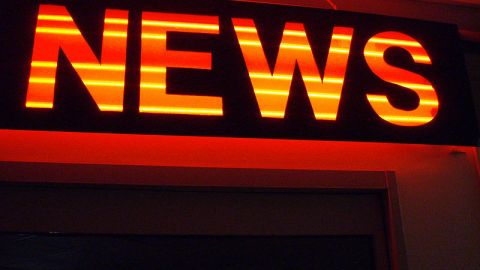The Newspaper Goes Digital and You’ll Have to Buy It

That’s right. It’s happening. Print is being phased out and new digital platforms, which will require subscriptions to read, are being phased in. Today, a news corporation, a journalist and news enthusiast, and the Academy each give their take on the future of the newspaper as it moves to digital reading devices like iPad and Kindle.
We begin with the journalist Dan Kennedy who refreshes with his common sense, articulated cleanly as an informed consumer willing to pay to read the news. If, unlike Kennedy, you refuse to pay a cent for the news that has been given away during the last decade, you will inevitably find yourself without any current events to read about. But if you can be fair about things, then Kennedy’s your man. He realizes that subscription platforms alone won’t attract anyone given that so much of a source’s content—say the New York Times’—is available online for free. Thus, a more general paywall must accompany tomorrow’s e-device subscription plans. Still, Kennedy is a price conscious consumer. He won’t pay for a twenty-four hour 3G connection just to read the paper for an hour throughout the day. He wants a digital edition available to download quickly and peruse at his leisure. Ask and you shall receive. Kennedy reports that the Boston Globe has just announced such a plan.
Rupert Murdoch and his News Corporation have a plan, too (don’t they always?). Realizing that media is often consumed on the go, Murdoch boasts that he will have young people reading newspapers again by creating a newsroom that offers quick, digestible stories on e-devices. Murdoch is one step ahead of the rest when it comes to the paywall that Kennedy thinks must accompany any digital subscription service. News Corp.’s Times of London and The Wall Street Journal already place their content behind a paywall.
And now the slow march: the Academy weighs in at the Columbia School of Journalism. Digital devices are a gift to the newspaper industry, the CSJ says. Collectively, the devices are the gift of opportunity, the chance to once again charge for news!
The circulation levels and ad dollars of yesterday may be gone for good, but there are real opportunities to reclaim control of journalism’s financial future. Second chances are rare, and if we miss this opportunity to capitalize on digital content, we may not get a third.
The CSJ emphasizes that news producers should negotiate with third party platforms like iPad and Kindle to ensure they retain creative and pricing control over their own products. I’m guessing they knew to do that already, but then again, look at the music industry. For the rest of the longwinded nitty-gritty, follow the link to the CSJ above.





